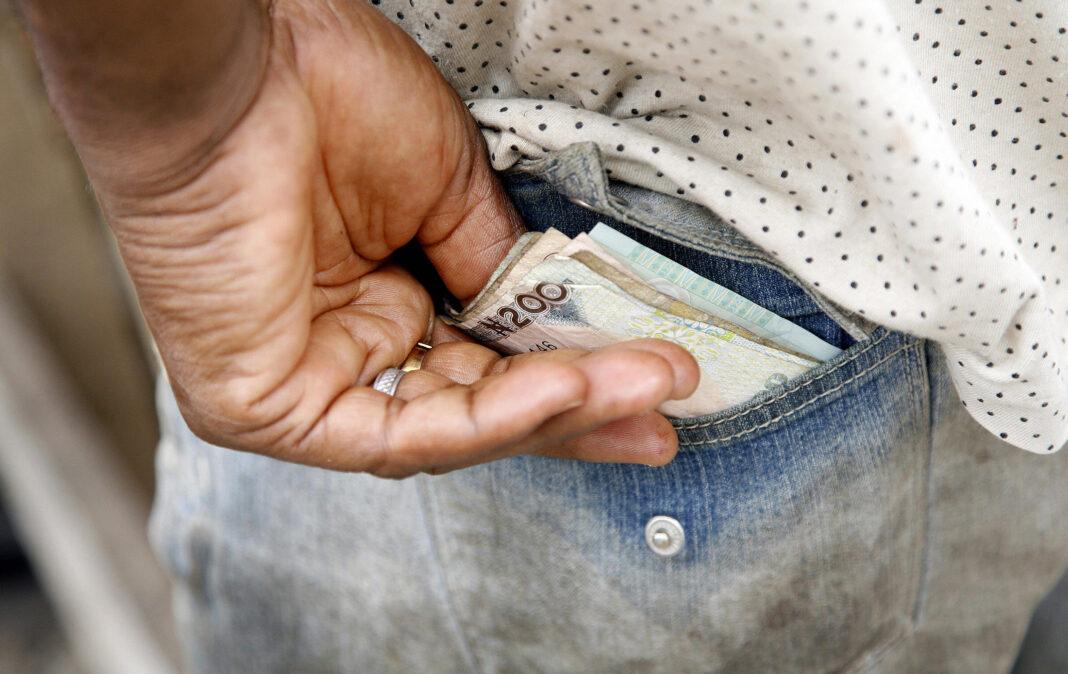Over time, every society develops unique languages around its trades. In Nigeria, the political lexicon has been growing quite rapidly over the years. If Nigerian politicians who left the system before the advent of the 21st Century were to come back today, they would be unable to know the meaning of such terms as “budget–padding”, “poaching”, “vote-buying” and lots more.
These new entries into our lexicon would remain alien to people in other climes, except those who want to learn from us. That’s part of the evolution of our political system.
Today, we are looking at the issue of vote-buying, which involves the voter obtaining money from the contestant in an election to vote for him. Here, the voter turns himself into an article of trade or a commodity to be purchased by the contestant.
As we approach the 2023 general elections, the issue of vote-buying has become very topical. More so, the 469 wise men at the National Assembly have gone ahead to include in the Electoral Act, 2022, stiff punishment for people who will engage in it.
We are looking at two fundamental questions: Why would the National Assembly be setting expenditure limits that cannot be monitored in an election? Why would they be making laws that cannot be enforced?
It is a curious paradox that our politicians who frown openly at vote-buying are the same ones engaged in it. In the area of contracts, we are looking at the concepts of offer and acceptance – if the politicians are offering nothing, the voter will have nothing to accept.
Apparently, the 469 wise men were a bit myopic in their approach to the issue of vote-buying. They looked at an election as a one-day affair.
We see an election as a set of activities spanning over a long period of at least one year. For our purpose here, let’s limit ourselves to one year.
The Electoral Act 2022 sets the limit of expenditure at N5 billion for those contesting the office of President. They failed to realize that this highest office in the land has become so attractive that the competition for it has become cut-throat. In this cut-throat competition, the new normal has become that each party becomes factionalized and each faction produces a list of delegates for primary elections.
The national headquarters that has to determine which of the lists that eventually get accepted are not manned by angels. They are Nigerians who have blood running through their veins. Whether you eventually call it “consolidated bribe money of N1 billion” or “some scattered form of housing allowance refund”, it is, nevertheless, an expenditure item; and somebody pays it! But who is monitoring that? To the extent that these are inducements for people to vote in a certain way, they are certainly the beginning of vote-buying!
Have you ever seen a system at war with itself? What do they think they’re doing when before every major election they move to the marketplaces in our major cities and begin to dish out N5000 handouts in “Trader-money”, “Plumber-money”, “Hairdresser-money”, etc., under the guise of social-intervention? The expenditure here runs into hundreds of billions of Naira of the taxpayer’s money. Who is deceiving whom? And who is legislating against vote-buying?
This is one system that is totally dollarized and monetized. You are setting an expenditure limit of N5bn when it is known that on the eve of the primary election, many of the contestants easily spend 10 times that amount. Who monitors that? We hear that the INEC officials, EFCC operatives, and sundry security agents are always there. But where exactly are they to be found? It is beginning to appear as a process of the more you look, the less you see.
They would be comfortably seated at Eagle Square while the deals are done in the delegate’s hotel rooms. So, they see nothing and repair nothing. It also pays them to see nothing. After all, they, too, might have been settled separately.
Admittedly, legislating on morality – is a difficult thing. Vote-buying is an issue between two consenting adults- a willing seller and a willing buyer, and it is not done in the open, rather it is done under candlelight and in the thick of the night.
In one electoral cycle, we have seen the party officials or headquarters, election officials, law enforcement officers, security agents, and national delegates, all smiling to the bank – courtesy of the contestants!
It is now Election Day proper. This is where we begin to pursue the shadow and leave the substance. The poor voter has been so ignored and starved that he has come to accept the N2000 purchase price for his vote as a way of life. This is the only fringe benefit he gets from the position in four years. He, too, has devised a clever way of getting paid in the night – a day or two before Election Day! So the entire law comes to naught and aspects of the Electoral Act 2022 have since become a dead letter.
My heart bleeds for election observers who, at the polling stations, open their eyes to catch vote buyers and sellers. But alas, the deal had been consummated last night!
Yes, vote-buying goes on very actively in our system. It is certainly a major bane in our elections. But like the weather, which everyone complains about but nobody can do anything about, it remains totally elusive. Evidently, when you make laws prohibiting an act, you look aside and see the act being brazenly carried out, it is undermining of faith in the entire process of law-making and enforcement.
However, all hope is not lost. It is a passing phase. Someday soon, we shall have a system where vote-buying and other associated vices shall not be needed. The choice we make in 2023 will perhaps be a foreshadowing of things to come.





